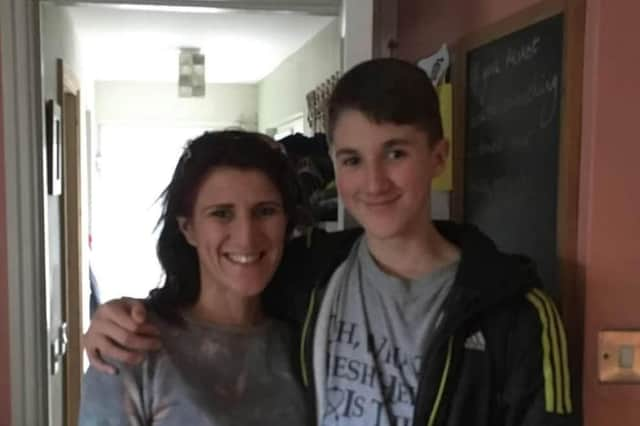Teenager found dead at homeless hostel ‘could have got drugs wherever he was living'


Ben Nelson-Roux died at Cavendish House in Harrogate on April 8 in 2020, after taking a number of substances, including cocaine, diazepam and ecstasy.
His mother Kate Roux, from Knaresborough, said he had been struggling with attention deficit hyperactivity disorder (ADHD), mental health issues and drug and alcohol abuse for several years. He was also being exploited by criminals and forced to sell Class A drugs.
Advertisement
Hide AdAdvertisement
Hide AdAn inquest into his death heard Harrogate Borough Council provided him with accomodation after he was asked to leave the family home in January 2020, because he had become violent.
Cheryl Parker, a Youth Justice Service Substance Abuse Worker, had been meeting with Ben on a regular basis since November 2019, to discuss his drug use.
Ms Parker was concerned he had been moved into a homeless hostel and said it would have been “ideal” for him to go home, but “that really wasn’t an option”.
According to Ms Parker, Ben was nervous about living with strangers at the hostel, felt “he couldn’t be himself”, and saw some of them injecting drugs, but decided “that's not something he wanted to engage in at all”.
Advertisement
Hide AdAdvertisement
Hide AdShe added: “He was already accessing drugs when he lived at home, so the reality is he would have accessed drugs wherever he was living.”
During their first meeting, the teenager said he was smoking cannabis on a daily basis but had also used alcohol, cocaine, ketamine, pregabalin, ecstasy and nitrous oxide in the last month.
He did not explain why he was using these drugs, but realised they were affecting his mental health.
“Ben was forthcoming,” she said. “I liked him. He was a very likeable young man.
Advertisement
Hide AdAdvertisement
Hide Ad“He talked openly and, I believe, honestly about his mental health and he was receptive to the harm reduction information and to understand what the risks were.”
Ms Parker said he agreed to try and reduce his overall drug use and stop bingeing, but felt he needed to keep smoking cannabis to cope with his mental health issues.
Ben liked to take drugs to escape reality and said he wanted to try psychedelics like LSD but was urged to refrain, she added.
After several meetings in January, Ms Parker became concerned about the teeanger’s “limited ability to say no” and said he had “very little understanding” about the risks.
Advertisement
Hide AdAdvertisement
Hide AdBut Ben also told her he wanted a job to “focus his attention on” and provide some structure.
Ms Parker said he did not want to meet on January 23, shortly after he had been asked to leave the family home, and “sounded down”.
After missing an appointment in February, he became more reluctant to engage and he missed another three in March.
Ms Parker met with him for the final time on April 2, after he had taken diazepam and alcohol, and warned him about the “extremely high risk” of combining the two.
Advertisement
Hide AdAdvertisement
Hide AdHe also asked her “what’s wrong with me?” after mental health specialists told him he would not be diagnosed with a disorder.
“I was making progress in terms of increasing his knowledge about the effects and risks of what he was doing,” Ms Parker said.
“Was I making any progress in terms of helping him reduce that or stop that? Probably not.”
The inquest continues.